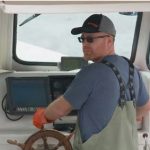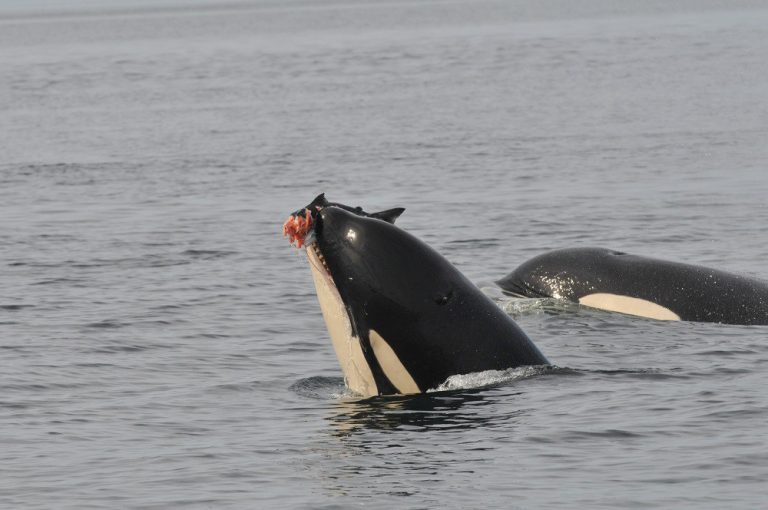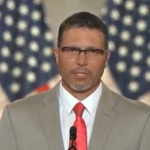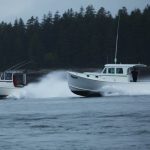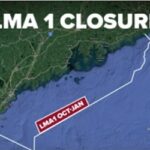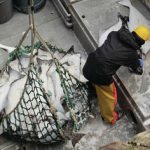Tag Archives: Washington Department of Fish and Wildlife
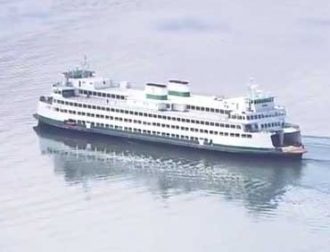
Washington State Ferries vs crab pots: The price of the conflict
The summer season is a very busy time for the Washington State Ferries when several million people are expected to catch a boat. But it is also a busy time for crab fishermen. However, improperly set crab pots can halt ferry travel. “We actually had five ferries damaged by crab pots. Two of them were only superficial damage and it only took them out of service for a few hours,” Captain Scott Freiboth from the Washington State Ferries. “We used a submersible remote-controlled robot to asses that damage and were able to repair them almost immediately. The other three vessels were pulled from service which cut into our available ferries.” >click to read<21:07
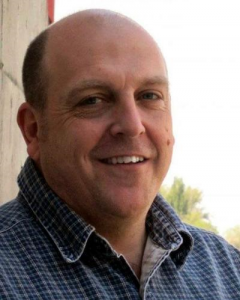
Sympathy to new state Washington Department of Fish and Wildlife director
Dear Mr. Kelly Susewind, Allow me to express my deepest sympathy. .,, You said it was an honor to serve the people of the state of Washington. And you want to “deliver the results they deserve.” That’s scary.,, The orcas are starving from a lack of salmon. So, we shut down the salmon hatcheries and protect the exploding population of sea lions, seals, cormorants and mergansers that eat as many salmon as the orca and humans put together. The surviving salmon are forced to swim through the thousands of tons of pollutants in a chemical stew that we dump into Puget Sound every year, whose ingredients include but are not limited to sewage, drugs, pesticides, herbicides, personal care products and industrial chemicals, while ignoring the impacts on fish, orcas and humans. Pat Neal >click to read<14:59
Washington Department of Fish and Wildlife names Kelly Susewind new director – >click to read<
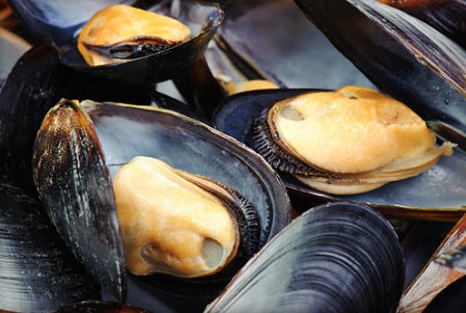
Waste Water Treatment Plants: Mussels off the coast of Seattle test positive for opioids
As more and more American communities grapple with opioid addiction, the human toll of the epidemic has grown in both scope and severity. And now, scientists at the Washington Department of Fish and Wildlife have found evidence that drug’s impact has literally flowed downstream to affect marine life, as well.,,, In three of the 18 locations, the mussels then tested positive for trace amounts of oxycodone. How, you ask? When humans ingest opioids like oxycodone, they ultimately end up excreting traces of the drugs into the toilet. Those chemicals then end up in wastewater. And while many contaminants are filtered out of wastewater before it’s released into the oceans, wastewater management systems can’t entirely filter out drugs. Thus, opioids, antidepressants, the common chemotherapy drug Melphalan — the mussels tested positive for all of them. >click to read<08:04
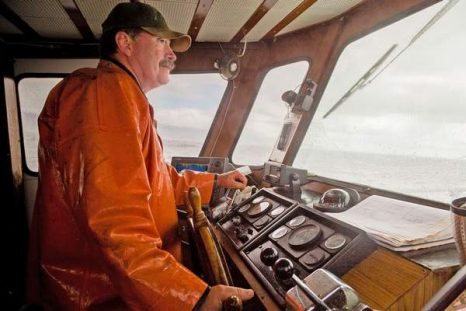
Charges filed in high-grading case against Ilwaco charter skippers
Several local charter skippers and crewmen could soon be reeling in hefty fines and jail sentences. Following a nine-month Washington Department of Fish and Wildlife investigation, the state in early April filed a total of 37 criminal charges against six men affiliated with Pacific Salmon Charters: David Gudgell, 57, of Seaview; Robert Gudgell, 56, of Longview; Thomas Merriman, 61, of Sammamish; Brian Cables, 59, of Ilwaco; Patrick Gore, 28, of Deer Island, Ore.; and Richard Mercado, 52, of Tacoma. Investigators say the men systematically urged,,, >click to read<14:55

Woman raped by Fish & Wildlife official: ‘I used to be so happy’
When Thurston County Superior Court Judge James Dixon sentenced ex-Department of Fish and Wildlife official Greg Schirato to the maximum sentence for breaking into a colleague’s home and raping her in her sleep, the woman he attacked burst into sobs, a smile breaking through. “I believe Mr. Schirato is a predator,” Dixon said, handing down a sentence of about 10 years to life in prison. “I believe this community needs to be protected from Mr. Schirato. I believe our community has a right to be heard, I believe (the victim) has a right to be heard.” >click to read<14:30
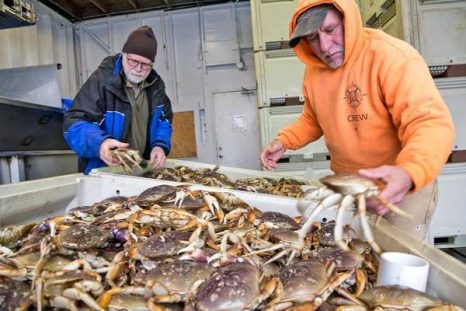
Slow crawl for crab: Seasonal delays stifle coastal economy
Price strikes, delays and poor weather have plagued the 2017-18 Dungeness crab season from the start. Roughly four weeks into the season, landings for the non-tribal coastal crab fishery in Washington were 5,574,792 pounds, only about 60 percent of the total catch during the first weeks of 2016-17 season. “It’s clear this season we are behind,” Dan Ayres, coastal shellfish manager with the Washington Department of Fish and Wildlife, said upon seeing the first official numbers of the season on Friday, Feb 16. >click to read<12:35
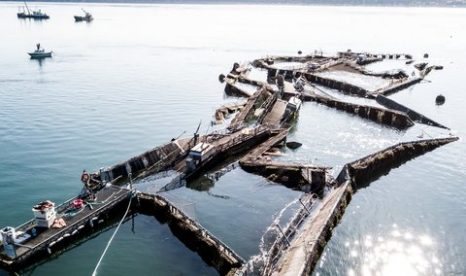
Fish farm caused Atlantic salmon spill, state says, then tried to hide how bad it was
Cooke Aquaculture Pacific vastly underrepresented the scope of a catastrophic Atlantic salmon net-pen spill at its Cypress Island farm last August and misled the public and regulators about the cause, according to a new report by state investigators that blames the pen collapse on company negligence. The investigation found that Cooke lowballed the number of escaped fish by more than half, and did not do essential maintenance at its farm, causing the escape. The company also misled agencies about the seriousness and cause of an earlier mishap,,, >click here to read< 20:26
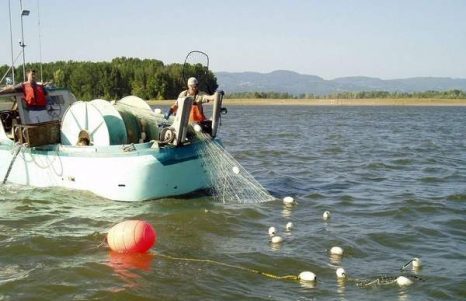
Despite frustration, observation plan yields new fish data
Gillnet fishermen bristled at a requirement to carry state observers last fall, but what felt like a burden to the fleet may have turned out to be a blessing. Preliminary data collected on the trips show that the number of steelhead fishermen kill while trying to catch other fish may actually be much lower than the historic rate. It’s good news for a fishery that has been under fire for using gear opponents say harms fish runs — and even better timing. Last year’s steelhead run was one of the worst returns in decades. >click here to read< 16:13
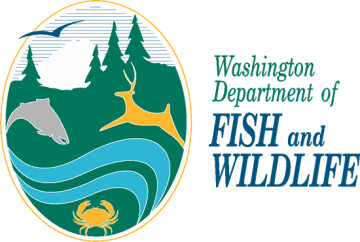
Commercial crab fishing to open Jan. 15 on the Washington coast
Washington’s commercial Dungeness crab fishery will open in coastal waters Jan. 15 after a six-week delay, state shellfish managers announced today. Fishery managers for the Washington Department of Fish and Wildlife (WDFW) approved the opening in coordination with fishery managers from Oregon and California. click here to read the notice 19:37 
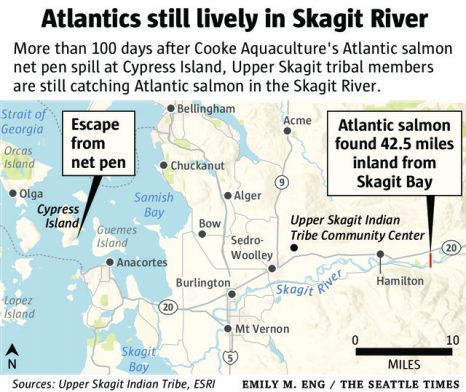
Escaped Atlantic salmon found 42 miles up Skagit River
Strong, silvery and feisty, the Atlantic salmon hit the boat deck, thrashing and thumping. It was the sixth one the Upper Skagit Indian fishing crew caught that day. More than three months after a massive escape of Atlantic salmon from Cooke Aquaculture’s net pen at Cypress Island, Atlantics are still turning up very much alive in the Skagit River, one of Washington’s premier Pacific salmon strongholds.,, Caught more than 42 miles up the Skagit in a brief fishery in just a short stretch of river, those Atlantics were surely not the only ones in the river or the region, said Scott Schuyler, natural-resources director for the Upper Skagit Indian Tribe, based in Sedro-Woolley. 11 photo’s click here to read the story 18:19
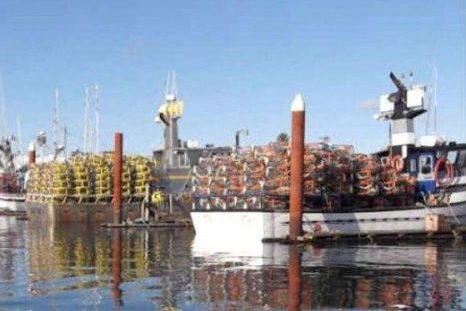
Crab start delayed again
The commercial Dungeness crab season has been delayed again along the entire Pacific coast north of Point Arena, California until at least Dec. 31 after tests showed some crab are still too low in meat yield. Crab on the south Washington coast met the meat standard in Dec. 4 testing, but all areas north of Cascade Head have to be at or above 23 percent before the season can open. South of Cascade Head, the required meat threshold is 25 percent. (Cascade Head is located just north of Lincoln City on the north Oregon coast.) click here to read the story 14:04
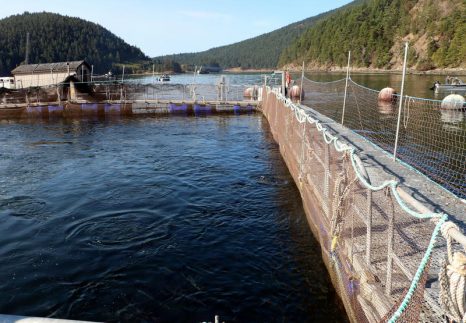
Puget Sound piracy leaves trail of (salmon) blood
Call it Puget Sound piracy. Thieves boarded a floating salmon farm a few saltwater miles from Anacortes on a Saturday night in September. In their wake, they left a trail of blood. Fish blood, that is. The thieves boated out to one of Cooke Aquaculture’s Atlantic salmon farms, a grid of 40-foot-deep net-pens ringed by a floating walkway bigger than a football field. They hauled away an undisclosed number of fish from two of the 10 pens. They killed more by turning off the farm’s air hoses that help oxygenate the water where the domesticated salmon swim by the thousands. click here to read the story 12:53

WDFW delays commercial crab fishery on Washington coast due to low meat content
State shellfish managers have delayed the opening of the commercial Dungeness crab fishery on Washington’s coast due to inadequate meat in crab shells. Recent testing indicates crabs along the coast do not have sufficient meat in their shells to meet industry standards for harvest. The fishery will be delayed until at least Dec. 16 to allow more time for crabs to fill with more meat. Contrary to an erroneous news report, WDFW did not delay the commercial crab fishery due to a harmful algae bloom click here to read the story 17:53
Washington Department of Fish and Wildlife – Crab still soft, light on meat
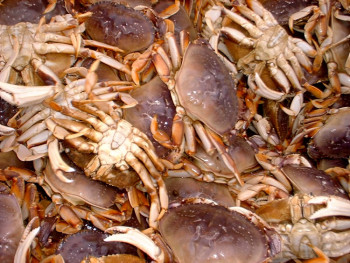 Dungeness crab in the Long Beach area are putting on meat at a slower rate than last year, possibly calling into question whether they will be ready for harvest by the traditional Dec. 1 start date. Samples gathered by Oct. 24 in the Long Beach test area had a meat-recovery rate of 19.9 percent, compared to 23 percent from samples gathered by Oct. 30 last year. Samples from the Westport area collected on or before Oct. 27 had a recovery rate of 20.2 percent, compared to 22.9 percent last year. A test conducted by the Quinault Indian Nation (off Westport and Point Grenville) on Oct. 17 had a pick-out rate of 16.5 percent, according to an Oct. 31 report by the Washington Department of Fish and Wildlife. click here to read the story 19:37
Dungeness crab in the Long Beach area are putting on meat at a slower rate than last year, possibly calling into question whether they will be ready for harvest by the traditional Dec. 1 start date. Samples gathered by Oct. 24 in the Long Beach test area had a meat-recovery rate of 19.9 percent, compared to 23 percent from samples gathered by Oct. 30 last year. Samples from the Westport area collected on or before Oct. 27 had a recovery rate of 20.2 percent, compared to 22.9 percent last year. A test conducted by the Quinault Indian Nation (off Westport and Point Grenville) on Oct. 17 had a pick-out rate of 16.5 percent, according to an Oct. 31 report by the Washington Department of Fish and Wildlife. click here to read the story 19:37
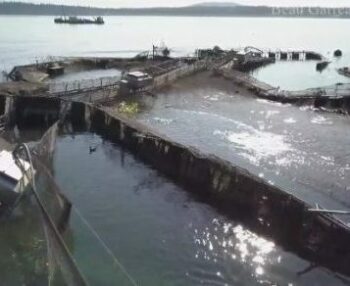
Cooke Aquaculture Fish farm has 60 days to fix net pens outside Seattle, risks losing lease
Just a week after the state Department of Fish and Wildlife approved shipment of 1 million more farmed Atlantic salmon to Cooke Aquaculture’s fish farm near Bainbridge Island, another state agency says it has found a hole in the nets and corrosion in the structure of the facility. The Department of Natural Resources on Monday notified Cooke that it is in default of the terms of its lease at its Rich Passage operation. It ordered the facility repaired within 60 days, or the department may cancel the company’s lease for the facility, which operates over public bed lands. click here to read the story 13:53
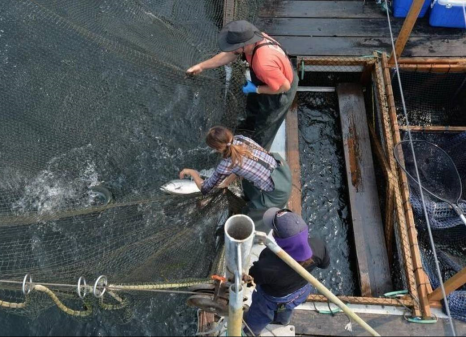
Traffic, sun blindness, now eclipse dumps 305,000 Farmed Atlantic salmon near San Juan Islands
It’s open season on (farmed) Atlantic salmon as the public is urged to help mop up a salmon spill from an imploded net holding 305,000 fish at a Cooke Aquaculture fish farm near Cypress Island. Lummi fishers out for chinook on Sunday near Samish, south of Bellingham Bay, were shocked to pull up the spotted, silvery sided Atlantic salmon — escapees that turned up in their nets again Monday. The Washington Department of Fish and Wildlife is urging the public to catch as many of the fish as possible, with no limit on size or number. The fish are about 10 pounds each. No one knows yet how many escaped. But the net had some 3 million pounds of fish in it when it imploded about 4 p.m. Saturday, said Ron Warren, fish program assistant director for the WDFW click here to read the story 15:05
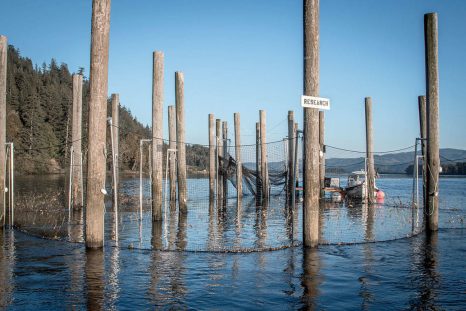
DFW proposes a test commercial fishery using fish traps in Willapa Bay
Fish traps, banned in Washington in 1934 for being so effective they were singled out as the major cause of salmon declines at the time, are now being eyed by the state Department of Fish and Wildlife and wild fish proponents as a tool to allow for commercial harvest of hatchery fish while decreasing the mortality of native salmon in Willapa Bay. “We were thinking, what kind of alternative fishing method should we be thinking about with the commercials,” said Annette Hoffman, Region 6 fish program manager. “We sent out a reminder (to commercial fishing about getting their ideas) in December 2016, got a number of ideas and pursued all those that met the criteria, and only one person followed through with the process and that was the fish trap.” click here to read the story 09:42
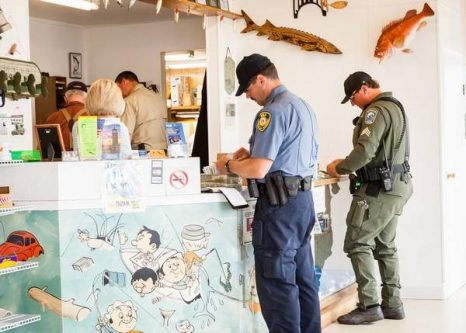
Local charter suspected of ‘high-grading’ prized halibut
Pacific Salmon Charters got an unexpected publicity boost earlier this month, when the crew of the Pacific Dream rescued passengers from a sunken boat. Last week, the company received not-so-welcome attention from state and federal game wardens. On Thursday, July 13, officers from the National Oceanic and Atmospheric Administration and Washington Department of Fish and Wildlife served a search warrant at the Pacific Salmon office at the Port of Ilwaco. According to the warrant, Pacific Salmon crews are suspected of habitually “high-grading,” or catching more than the legal limit of fish, and keeping only the most desirable specimens. Investigators say they have evidence that Pacific Salmon Charters crews high-graded on at least two trips during the short spring halibut season. click here to read the story 13:06
Ocean conditions appear improving for salmon
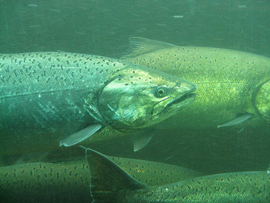 Warm water temperatures in the north Pacific Ocean are starting to cool after three years, but their effect on Northwest salmon will persist for another year or two. “Strange times, but things are looking up, that’s the message,’’ said Marisa Litz of the Washington Department of Fish and Wildlife. Litz made her comments on Tuesday at the agency’s annual unveiling of Columbia River, coastal and Puget Sound salmon forecasts. She recently completed her doctorate from Oregon State University in Fisheries Science, focusing on how variable ocean conditions affect growth and survival of young salmon in the Northwest. Tuesday’s meeting began a six-week process that concludes with the Pacific Fishery Management Council adopting ocean salmon fishing seasons in mid-April. continue reading the story here 11:31
Warm water temperatures in the north Pacific Ocean are starting to cool after three years, but their effect on Northwest salmon will persist for another year or two. “Strange times, but things are looking up, that’s the message,’’ said Marisa Litz of the Washington Department of Fish and Wildlife. Litz made her comments on Tuesday at the agency’s annual unveiling of Columbia River, coastal and Puget Sound salmon forecasts. She recently completed her doctorate from Oregon State University in Fisheries Science, focusing on how variable ocean conditions affect growth and survival of young salmon in the Northwest. Tuesday’s meeting began a six-week process that concludes with the Pacific Fishery Management Council adopting ocean salmon fishing seasons in mid-April. continue reading the story here 11:31
California court case could disrupt WDFW Wild Future Initiative
 A decision made in a California court case may change the trajectory of a Washington Department of Fish and Wildlife initiative that would raise fees for resident commercial fishers and lower the fees for non-residents. Last December the U.S. 9th District Court of Appeals determined that California’s nonresident fee differential for numerous commercial fishing permits, licenses and vessel registration was constitutional. A group of out of state fishers challenged California differentiating between resident and non-resident fishers under the Privileges and Immunities Clause and the Equal Protection Clause of the U.S. Constitution. So what does the decision mean in Washington State? Well, the California lawsuit was the premise for the WDFW Wild Future initiative, which would essentially not differentiate fees for resident and non-resident commercial fishers, something the WDFW has called “equalizing the fees.” Read the article here 20:47
A decision made in a California court case may change the trajectory of a Washington Department of Fish and Wildlife initiative that would raise fees for resident commercial fishers and lower the fees for non-residents. Last December the U.S. 9th District Court of Appeals determined that California’s nonresident fee differential for numerous commercial fishing permits, licenses and vessel registration was constitutional. A group of out of state fishers challenged California differentiating between resident and non-resident fishers under the Privileges and Immunities Clause and the Equal Protection Clause of the U.S. Constitution. So what does the decision mean in Washington State? Well, the California lawsuit was the premise for the WDFW Wild Future initiative, which would essentially not differentiate fees for resident and non-resident commercial fishers, something the WDFW has called “equalizing the fees.” Read the article here 20:47
Gillnetters oppose WDFW initiative to raise commercial fishing license fees for residents, lower for non-residents
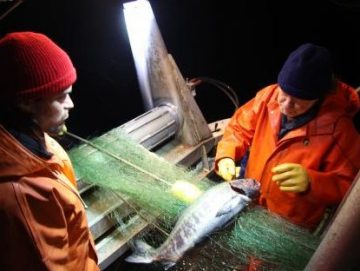 Washington Department of Fish and Wildlife has proposed an initiative called “Washington’s Wild Future: A Partnership for Fish and Wildlife” Among the policies, it calls for increasing the commercial fishing license fees. The proposed fees would generate close to $4 million in revenue per year, with $700,000 of that coming from license fee changes. Much of the policies in the initiative were modeled after Oregon and Alaska regulation. Essentially, the new legislation would increase the commercial license fee for residential fishermen by an average of 17 percent and decrease the non-resident license fee by 3 percent – something the WDFW calls “equalizing” the fees. For example, a Puget Sound Gillnetting Licenses for salmon currently costs $585 for residential commercial fishers and $890 for non-residents. Read the rest of the story here 17:32
Washington Department of Fish and Wildlife has proposed an initiative called “Washington’s Wild Future: A Partnership for Fish and Wildlife” Among the policies, it calls for increasing the commercial fishing license fees. The proposed fees would generate close to $4 million in revenue per year, with $700,000 of that coming from license fee changes. Much of the policies in the initiative were modeled after Oregon and Alaska regulation. Essentially, the new legislation would increase the commercial license fee for residential fishermen by an average of 17 percent and decrease the non-resident license fee by 3 percent – something the WDFW calls “equalizing” the fees. For example, a Puget Sound Gillnetting Licenses for salmon currently costs $585 for residential commercial fishers and $890 for non-residents. Read the rest of the story here 17:32
Willapa gillnetters losing grip
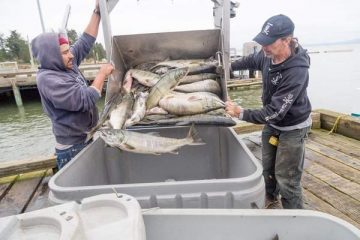 It’s been a tough two years for gillnetters on Willapa Bay. Battered by increasing costs, stifled by stricter regulation and furious over fewer fishing days, commercial gillnetters have been gritting their teeth since 2015 when a new management plan was instituted by the Washington Department of Fish and Wildlife. As some in the industry were forced to sell their boats and find new work, others remain steadfast and galvanized in their resolve in calling for change in what they say has been mismanagement by WDFW officials in Olympia. Over the past three years, the commercial gillnetting industry on Willapa Bay has gone through a gauntlet of highs and lows. Record catches were celebrated during 2014 only to be followed by the devastating 2015 season that was largely stifled under new regulation. Read the story here 08:56
It’s been a tough two years for gillnetters on Willapa Bay. Battered by increasing costs, stifled by stricter regulation and furious over fewer fishing days, commercial gillnetters have been gritting their teeth since 2015 when a new management plan was instituted by the Washington Department of Fish and Wildlife. As some in the industry were forced to sell their boats and find new work, others remain steadfast and galvanized in their resolve in calling for change in what they say has been mismanagement by WDFW officials in Olympia. Over the past three years, the commercial gillnetting industry on Willapa Bay has gone through a gauntlet of highs and lows. Record catches were celebrated during 2014 only to be followed by the devastating 2015 season that was largely stifled under new regulation. Read the story here 08:56
Commercial crab fishery delayed on Washington’s south coast
 State shellfish managers have delayed the opening of the commercial Dungeness crab fishery on a portion of Washington’s southern coast to allow more time for tests to ensure that crabs are free of marine toxins. The commercial fishery from the Columbia River north to Klipsan Beach on the Long Beach Peninsula was scheduled to open Dec. 1. This delay also includes the Willapa Bay commercial fishery. The delay doesn’t affect fishing in the Westport area, which was already expected to open later in December. The timing of that opening is tied to the catch of tribal crab fishermen as fish managers work to divide the catch based on treaty rights. Tribal crab fishing in the Westport area is already under way. State officials said there is currently no issue with toxins in crab along the Washington coast, but the opening is being delayed in order to coincide with Oregon’s schedule. Not to do so would mean fishermen would concentrate from Long Beach to the Oregon border and put too much fishing pressure on the area, fish managers said. Read the story here 11:23
State shellfish managers have delayed the opening of the commercial Dungeness crab fishery on a portion of Washington’s southern coast to allow more time for tests to ensure that crabs are free of marine toxins. The commercial fishery from the Columbia River north to Klipsan Beach on the Long Beach Peninsula was scheduled to open Dec. 1. This delay also includes the Willapa Bay commercial fishery. The delay doesn’t affect fishing in the Westport area, which was already expected to open later in December. The timing of that opening is tied to the catch of tribal crab fishermen as fish managers work to divide the catch based on treaty rights. Tribal crab fishing in the Westport area is already under way. State officials said there is currently no issue with toxins in crab along the Washington coast, but the opening is being delayed in order to coincide with Oregon’s schedule. Not to do so would mean fishermen would concentrate from Long Beach to the Oregon border and put too much fishing pressure on the area, fish managers said. Read the story here 11:23
The European green crab invades Washington State inland waters.
Earlier this week in Westcott Bay, San Juan Island, a team of volunteer monitors caught an invasive green crab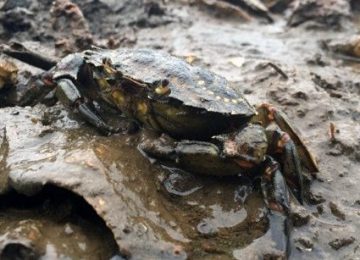 , marking the first confirmation of this global invader in Washington’s inland waters. The volunteers are part of Washington Sea Grant’s Crab Team, an early detection and monitoring program to look for European green crab (Carcinus maenas) and collect information on local marine life. Washington Department of Fish and Wildlife is responsible for controlling aquatic invasive animals. European green crab have been stowaways on ships bound for U.S. ports since the 1800s, establishing populations, eating local clams and other shellfish and causing serious impacts. In Maine, for example, softshell clam harvests declined dramatically when the crab became established and eelgrass beds have been damaged by the invader’s digging habits. Read the story here 12:25
, marking the first confirmation of this global invader in Washington’s inland waters. The volunteers are part of Washington Sea Grant’s Crab Team, an early detection and monitoring program to look for European green crab (Carcinus maenas) and collect information on local marine life. Washington Department of Fish and Wildlife is responsible for controlling aquatic invasive animals. European green crab have been stowaways on ships bound for U.S. ports since the 1800s, establishing populations, eating local clams and other shellfish and causing serious impacts. In Maine, for example, softshell clam harvests declined dramatically when the crab became established and eelgrass beds have been damaged by the invader’s digging habits. Read the story here 12:25
Proposal to increase commercial fishing license fees unveiled by the Washington Department of Fish and Wildlife.
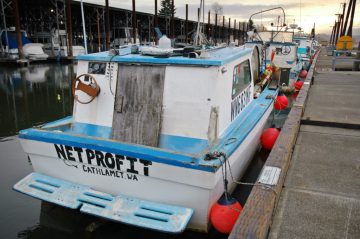 A proposal to increase commercial fishing license fees — including a new crew member charge — has been unveiled by the Washington Department of Fish and Wildlife. John Long, the agency’s regional director in Southwest Washington, told a public meeting in Vancouver on Monday the proposal would generate about $1 million from fee increases. Another portion of the proposal calls for redirecting revenue from commercial fees and an existing fish landing tax into the state Wildlife Account. Currently, that money goes into the state General Fund. Long said redirecting the money would generate an additional $3.6 million for the Department of Fish and Wildlife. The proposals require approval of the state Legislature. The agency needs $24 million in new revenue to maintain existing programs, he added. Read the rest here 09:51
A proposal to increase commercial fishing license fees — including a new crew member charge — has been unveiled by the Washington Department of Fish and Wildlife. John Long, the agency’s regional director in Southwest Washington, told a public meeting in Vancouver on Monday the proposal would generate about $1 million from fee increases. Another portion of the proposal calls for redirecting revenue from commercial fees and an existing fish landing tax into the state Wildlife Account. Currently, that money goes into the state General Fund. Long said redirecting the money would generate an additional $3.6 million for the Department of Fish and Wildlife. The proposals require approval of the state Legislature. The agency needs $24 million in new revenue to maintain existing programs, he added. Read the rest here 09:51
Salmon gillnetting to resume Aug. 7 in the Columbia River
 Nine nights of gillnetting in the lower Columbia River between Warrior Rock and Beacon Rock will begin Aug. 7. The commercial fleet will fish Sundays, Tuesdays and Thursdays from 9 p.m. to 6 a.m. through Aug. 26, according to regulations adopted today in Vancouver by the Columbia River Compact. Nine-inch-minimum-mesh nets will be required. Robin Ehlke, assistant Columbia River policy coordinator for the Washington Department of Fish and Wildlife, said the netters are projected to catch 2,200 fall chinook in the first week, 7,500 in the second week and 19,700 in the third week. Read the rest here 10:06
Nine nights of gillnetting in the lower Columbia River between Warrior Rock and Beacon Rock will begin Aug. 7. The commercial fleet will fish Sundays, Tuesdays and Thursdays from 9 p.m. to 6 a.m. through Aug. 26, according to regulations adopted today in Vancouver by the Columbia River Compact. Nine-inch-minimum-mesh nets will be required. Robin Ehlke, assistant Columbia River policy coordinator for the Washington Department of Fish and Wildlife, said the netters are projected to catch 2,200 fall chinook in the first week, 7,500 in the second week and 19,700 in the third week. Read the rest here 10:06
Despite delay, Dungeness maintain strong economic grip
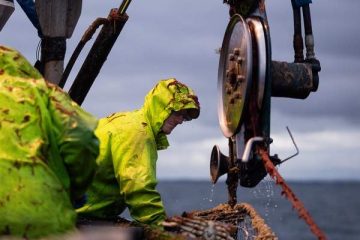 While some commercial crab fishermen are still trickling into ports in Oregon and Washington, the majority of commercial crabbing has slowed for the season as attention turns toward other fisheries. Those remaining are primarily doing so for the live crab market, which fetches top dollar. Oregon and Washington landings, The latest total for Oregon is 13.8 million pounds, according to the Oregon Department of Fish and Wildlife (ODFW) — a dramatic increase from the 8.2 million caught in 2014-15. The Port of Astoria has recorded 4.4 million pounds. Oregon landed 9.7 million pounds in January alone. In February 2.7 million pounds were recorded. The catch slowed to 700,000 in March and 440,0000 in April, respectively. Washington’s January catch also eclipsed the total for the 2014-15 season. Read the rest here 08:59
While some commercial crab fishermen are still trickling into ports in Oregon and Washington, the majority of commercial crabbing has slowed for the season as attention turns toward other fisheries. Those remaining are primarily doing so for the live crab market, which fetches top dollar. Oregon and Washington landings, The latest total for Oregon is 13.8 million pounds, according to the Oregon Department of Fish and Wildlife (ODFW) — a dramatic increase from the 8.2 million caught in 2014-15. The Port of Astoria has recorded 4.4 million pounds. Oregon landed 9.7 million pounds in January alone. In February 2.7 million pounds were recorded. The catch slowed to 700,000 in March and 440,0000 in April, respectively. Washington’s January catch also eclipsed the total for the 2014-15 season. Read the rest here 08:59
Impasse between fishery and tribal leaders puts Puget Sound salmon season in jeopardy
 State fishery managers announced late Tuesday they had reached an impasse with tribal leaders over a salmon season this summer. It will now be in the hands of the federal government to make the final decision that will affect the livelihoods thousands of people connected to the salmon fishery. Officials with the Washington Department of Fish and Wildlife are uncertain if a permit will be issued in time to hold recreational and non-tribal commercial fisheries in Puget sound. “This isn’t the outcome we had hoped for, but we will do our best to obtain a federal permit as quickly as possible,” said Ron Warren, head of WDFW’s Fish Program said in a statement Read the rest here 11:56
State fishery managers announced late Tuesday they had reached an impasse with tribal leaders over a salmon season this summer. It will now be in the hands of the federal government to make the final decision that will affect the livelihoods thousands of people connected to the salmon fishery. Officials with the Washington Department of Fish and Wildlife are uncertain if a permit will be issued in time to hold recreational and non-tribal commercial fisheries in Puget sound. “This isn’t the outcome we had hoped for, but we will do our best to obtain a federal permit as quickly as possible,” said Ron Warren, head of WDFW’s Fish Program said in a statement Read the rest here 11:56
Commercials get nine hours to fish lower Columbia on Tuesday
 Nine hours of commercial fishing for spring chinook salmon in the lower Columbia River will begin at noon on Tuesday. The Columbia River Compact today approved the commercial fishery, which will be from the mouth of the river to Beacon Rock using 4.25-inch mesh nets. Robin Ehlke, assistant Columbia River policy coordinator for the Washington Department of Fish and Wildlife, said the net fleet is expected to catch about 1,200 spring salmon. That number is projected to include 900 upper-Columbia-Snake chinook and 300 from the Willamette and other lower Columbia tributaries, she said. Read the rest here 10:12
Nine hours of commercial fishing for spring chinook salmon in the lower Columbia River will begin at noon on Tuesday. The Columbia River Compact today approved the commercial fishery, which will be from the mouth of the river to Beacon Rock using 4.25-inch mesh nets. Robin Ehlke, assistant Columbia River policy coordinator for the Washington Department of Fish and Wildlife, said the net fleet is expected to catch about 1,200 spring salmon. That number is projected to include 900 upper-Columbia-Snake chinook and 300 from the Willamette and other lower Columbia tributaries, she said. Read the rest here 10:12


































